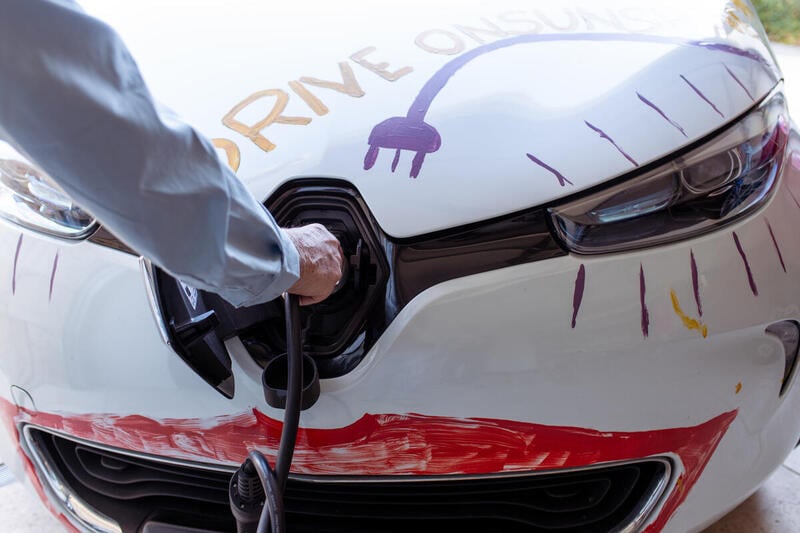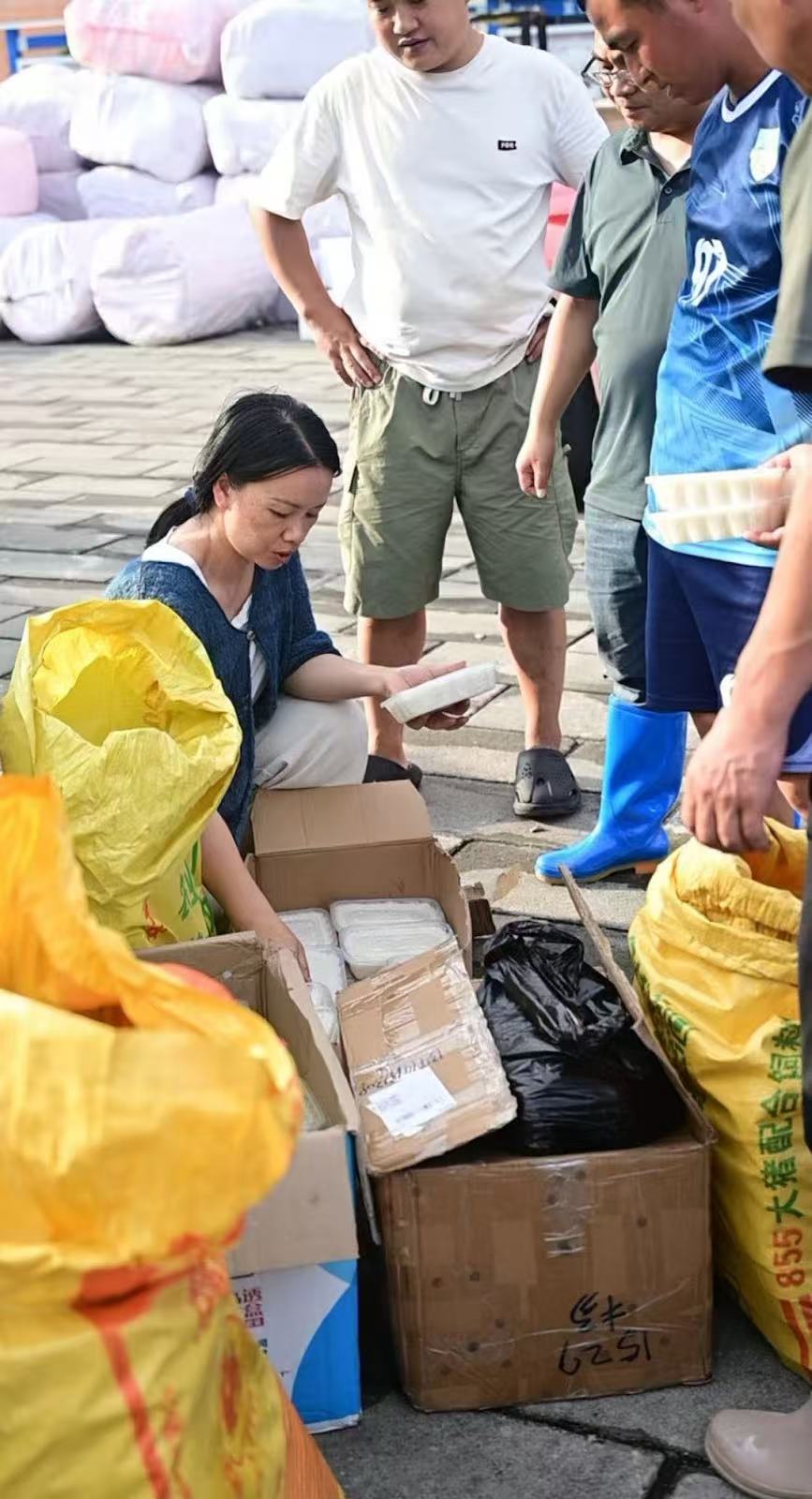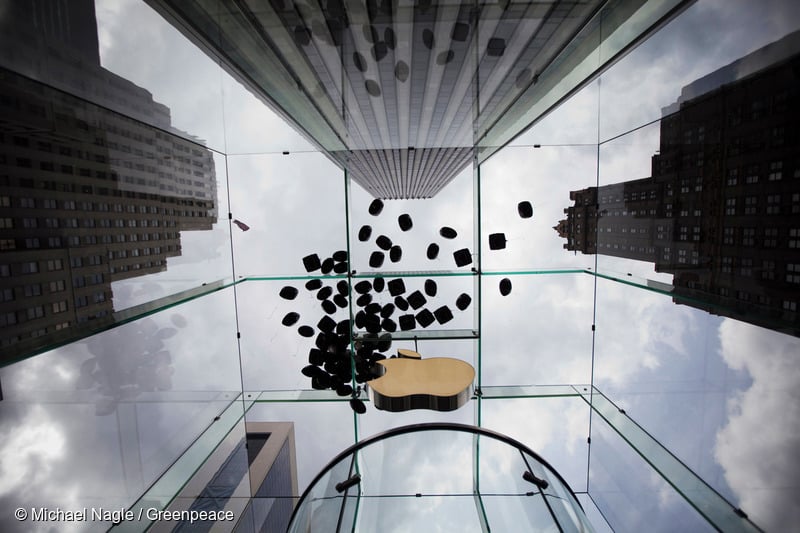Friday is the day when we are planning for weekend activities. Four teens aged from 8 to 15 however persistently spend their Fridays to spread the messages of climate crisis via their #FridaysForFuture actions. It has been 3 years since two of the teens have joined the cause. Have you ever realized you could help play a part and combat climate change in your daily life? Let’s find out what these young climate change fighters want to share with us.
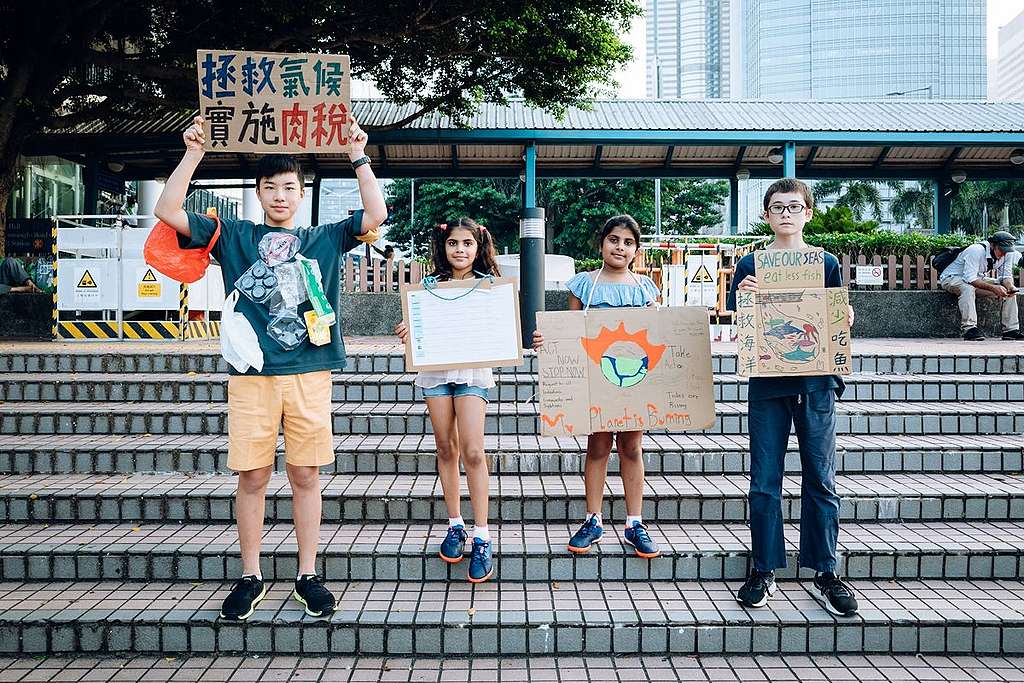
It was the last Friday in October, we met with 4 Hong Kong teen climate activists at the Central Pier to join them in #FridaysForFuture actions. The location of their climate actions differs from time to time, and the meeting schedule floats liquidly with the teens. This time, the primary school sisters, Dhaanya and Reaha, arrived all the way long from Discovery Bay and had to rush back for their evening training back on the island, while the two secondary boys, Max and Ennan, joined the sisters in the late after school.
Dhaanya & Reaha, in their third-year fight
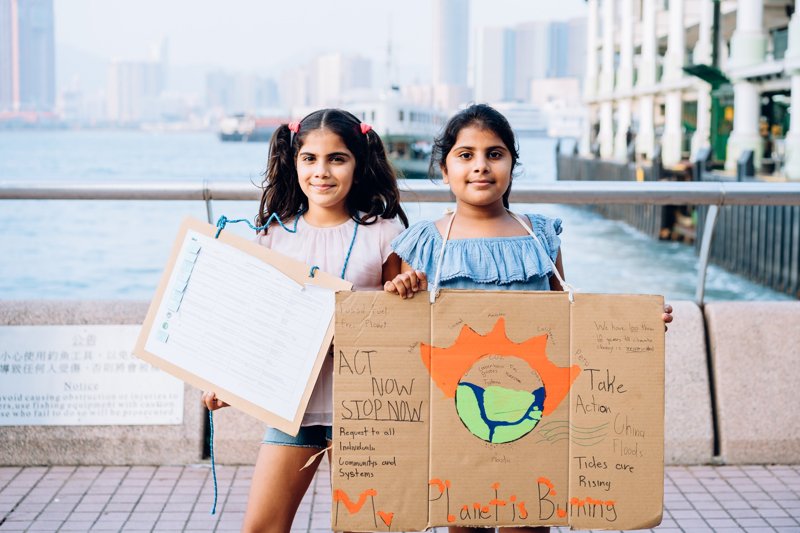
As climate change fighters, the two sisters have a clear mission. Dhaanya, the elder sister, pointed out directly, “We have 3 major objectives: 1. a fossil-fuel-free future, 2. Hong Kong as an international exemplar (in combating climate changes), and 3. a drop in beef consumption in Hong Kong“.
Each of the duos wrote some key pitching lines on a big carton-paper placard and held it straight up to display to the general public on the street. Taking the failing experience of their first action at Tung Chung, they realized that rather than standing still, they should proactively spread the climate change messages to the passers-by.
Reaha is usually responsible for the placard with 10 #ClimateActions. They asked any strangers they met to pick any numbers from 1 to 10, and based on the number(s) chosen, the girls explained a simple green action one could readily achieve in daily life, e.g. a 5-min shower, bring-your-own-bag, etc.
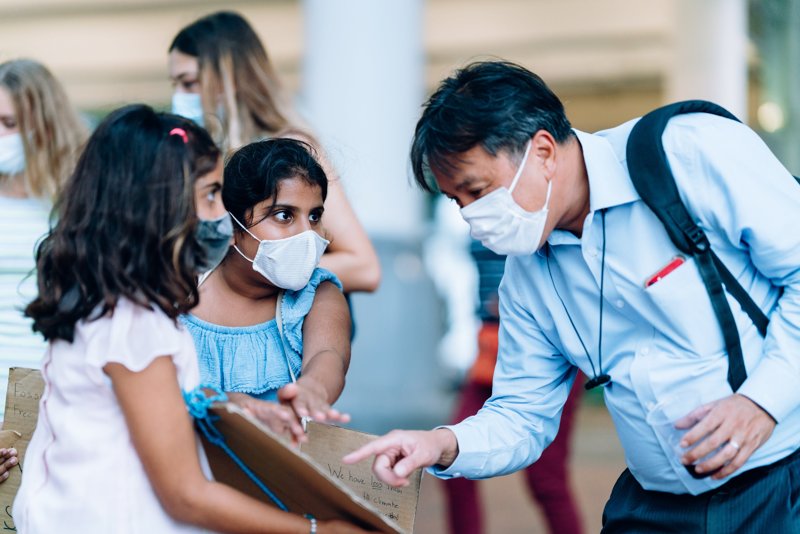
The three pillars for changes are the principle backing up the young girls’ actions: individual, community and system. The 8-year-old Reaha elaborated it with a “diamond of change” model: at the bottom of the diamond are individuals; with joint efforts, their power will level up to influence the community as a whole, bottom-up the changes to the system level. To Dhaanya, there is undoubtedly a need to reinforce changes by both governments and systems to address the climate change issues. At this stage, the changes are still carried out on the individual level, leaving much space for more decision-makers to tap in to visualize the changes required.
They embrace the values of “circular economy” which in essence is to maximize the life of all resources. They look forward to seeing it as a common practice in the community. The young girls’ mother proudly shared with us how she was inspired by the kids’ questions: why do you need to buy something new when you have enough at home?
They have a very catchy and precise description of how the society works under the current “linear economy” model, which is “produce produce produce, use use use, and waste waste waste”. The two girls encouraged us to think of 3 questions before shopping:
- Do you need it?
- Do you have it?
- Do you want it?
In practice, the mother of the two girls was wearing a birthday gift given to her 20 years ago while the two girls were wearing second-handed clothes during the interview. They lead their life as a role model to make a difference to the current over-production-and-consumption practice and take real action to help reduce waste from the source.
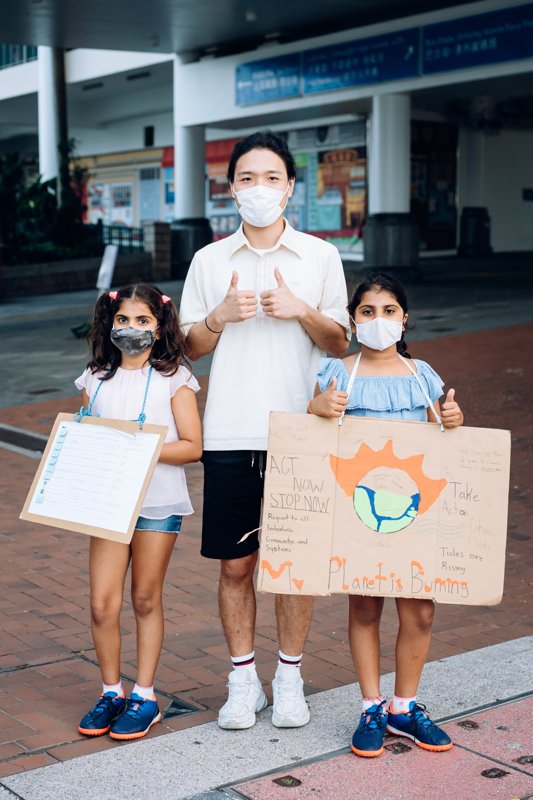
Ennan & Max, two local teen climate activists
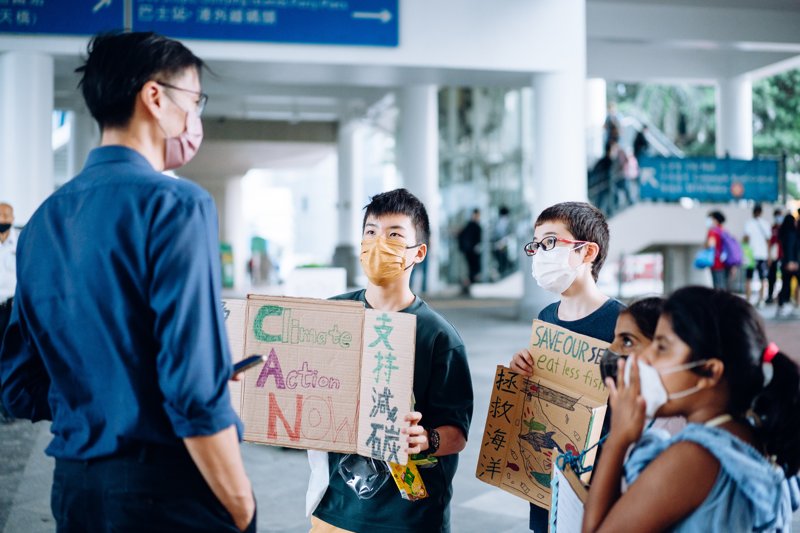
Compare to the sisters, even though Ennan and Max are both 15, they are “freshmen” in the local young climate movement. They started #FridaysForFuture action in Hong Kong for around three months and did the first one with Lance Lau.
What is Max concerned about? He cares about the enormous plastic waste found at seas and lands. To combat climate change, he stressed everyone has a role to play. As a next-generation, he remarked, “I see many people of my age keep using plastic straws and plastic cutleries and packaging for take-away. Already, there has been a lot of plastic waste the former generations have produced, I don’t like our generation repeating the same mistake.” He was not just pitching but took real action to keep recycling materials every week and stop eating beef which could possibly help to protect the Amazon Rainforests. He plans to turn to a fully plant-based diet in a few year-time.
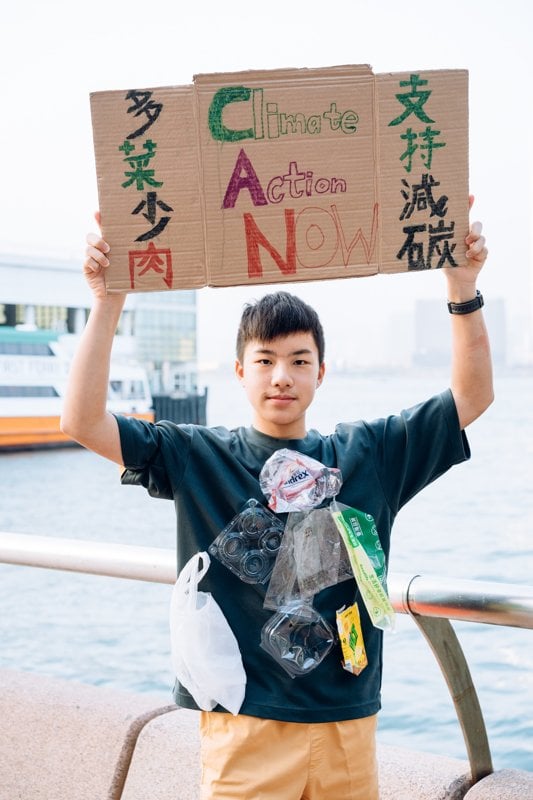
Ennan believes a vegetarian or vegan is the best approach to environmental protection. “We need to take immediate action and eat less meat, or our climate will suffer in the next decades or so”. He added the last and this generation of Hongkongers have been striving for “better” living but that is mainly tied in with materialism and consumerism. He noted that it has a cost to pay, and is to be paid by his generation. He looked forward to seeing more people joining him for the plant-based diet.
He often pays attention to the government’s policies related to the environment. Lately, the government proposed zero-carbon initiatives. He expressed his concern in particular about how it could be executed more effectively, “they mentioned the year 2050 but with no details nor any action plans, and what about what we are to achieve by 2030?”
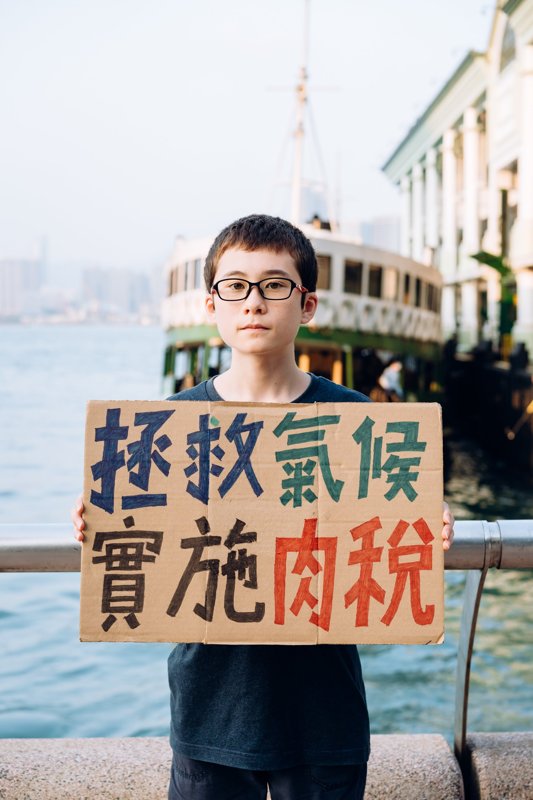
Stop Failing the Next Generation
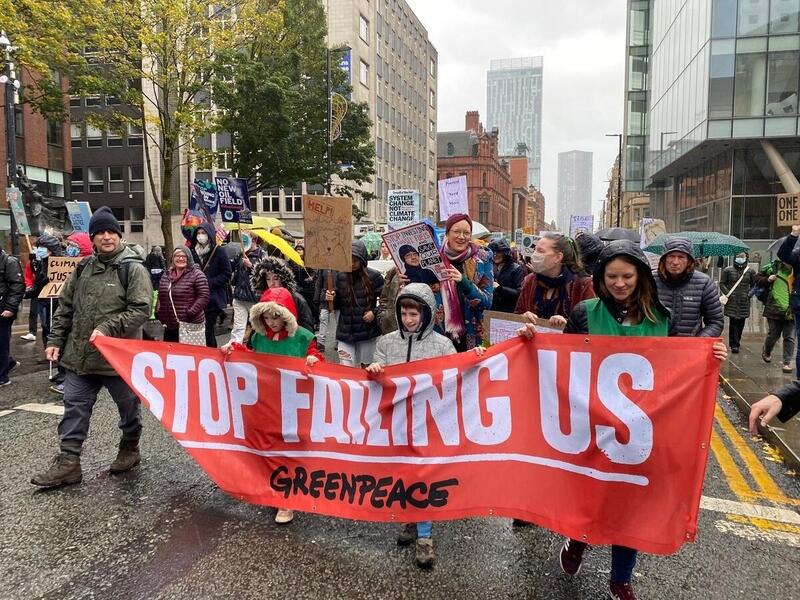
When we met for this interview, the United Nations Climate Summit was going to take place in Glasglow. When asked if these four young climate activists had any expectations from the COP26, the four hoped the global leaders attending the Conference could make the right choice, eliminate the use of fossil fuels and switch to renewable energy such as wind and solar.
They shared the view that it would be too far to expect COP26 to suppress the worst issues of climate change overnight, yet the Conference would act as a window opening up to exchange of views among the attending leaders, who share the same vision to resolve the global climate change issues. They were looking forward to a more detailed plan to address the climate change issue, and thereby the chances of changes it would leverage to the world.
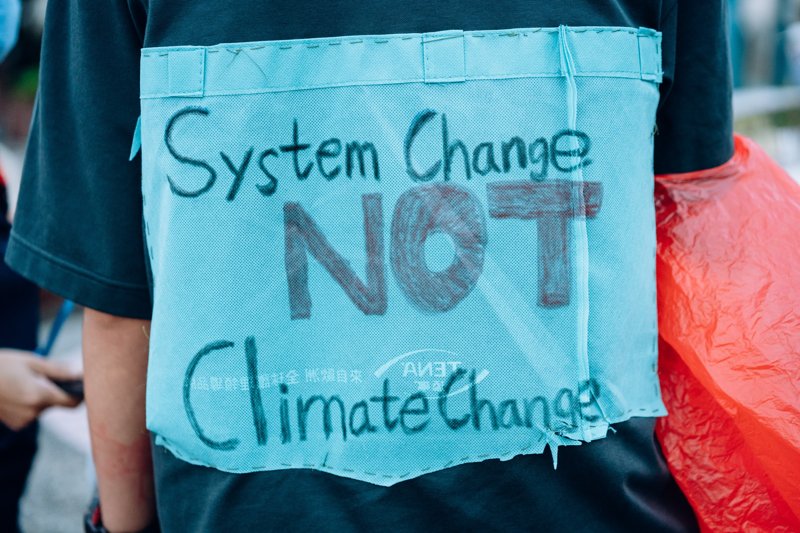
When asked what did they feel about the adults, Dhaanya boldly shared her views, “to be honest, I’m not very happy (about it)”, and she continued, “because they can do more than what we can do. Like, cutting down fossil fuel, the government can (do a lot about it) but they aren’t doing (anything effectively). That’s the problem. I am a little bit angry”.
Reaha tried to supplement by saying that they should be more annoyed than angry, in fact. To her, adults create a lot of wastes and problems, whereas it is the next generation like the two sisters who are cleaning up for them.
Ennan remarked he saw Greta Thunberg and many young activists joining the parade in Berlin on September 24, showcasing the considerable number of people’s concerns on the issue. Yet in Hong Kong not many pay enough attention to the “Climate Change” issues, and very often it was only four of them in climate actions, and “it’s no fun!” To Enna, Hong Kong people should have cared about climate change. “If we are the only four, we can never make it (on our own)”.
Max seconded the limited resources the four teens had. While they can hardly push forward policy or economic changes, they strive to outreach to any strangers they meet on the street every Friday to initiate green changes in others’ life. “Everyone is empowered to change, and our role is to promote it”. Like what Max concluded, it demands “dedication and commitment”. Dhaanya and Rheenha called for action from the public, “we can take a tiny green step every day, and together, we will make a great leap forward”. Their words explained why the four activists filled themselves with passion and energy to carry on, however small their group is currently.
Through the sharing of these committed teen climate activists, we hope you will get some insights into the compelling climate change issues. Trust their persistence on the hope for change would radiate, inducing more people in Hong Kong and the rest of the world to join Climate Actions Now! Spread the message and please also continue to support Greenpeace and join us to promote renewable energy revolution and phase out fossil fuel.
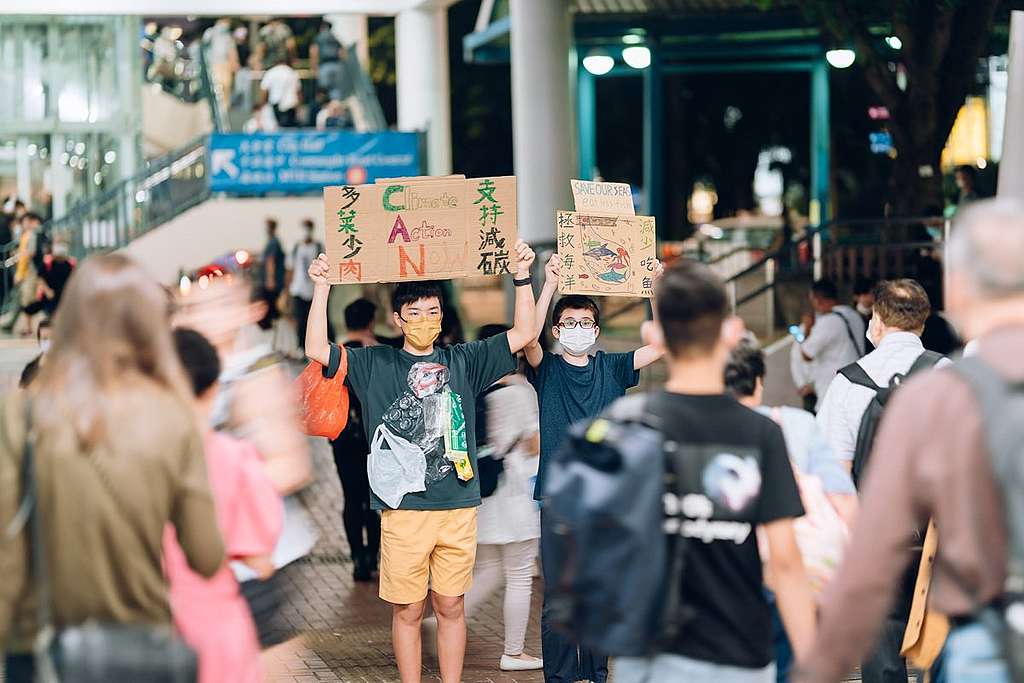
About “Let’s Talk about Climate Change” series
Climate change is not only here, but it has also evolved to “Climate Emergency”. As global citizens, we should not ignore the crisis we are in. Yet sometimes if not all, we might feel the issue is too big for us or too far away. We are inviting people in our local community, from all walks of life, to share with us how they connect to and make the effort to deal with climate change. Read More

